Heading overseas? Some tips before you go
Heading overseas? Some tips before you go
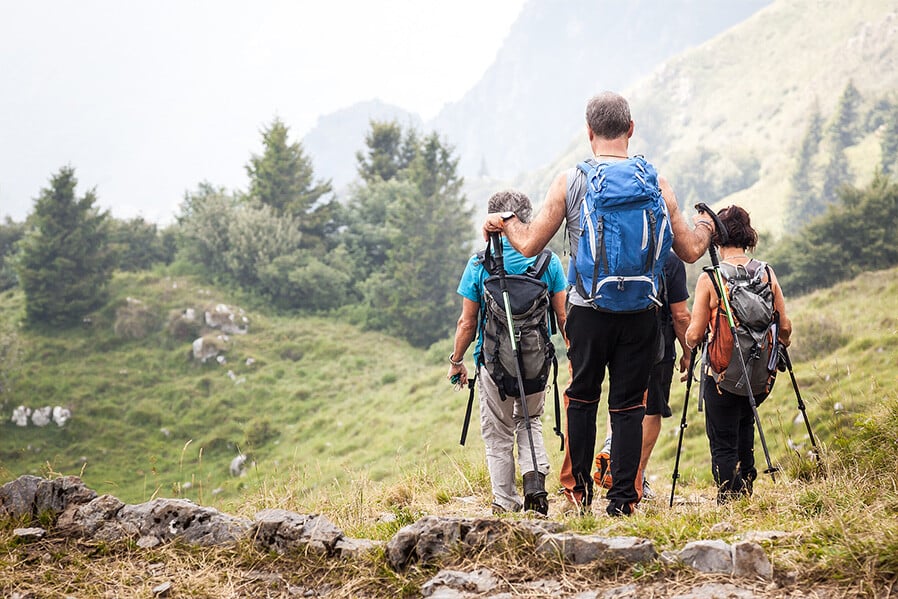
Retirement is the perfect time to explore the world, and the journey begins before you even step foot on a plane. With some planning, you can explore the world with ease. Wendy and John, residents of Ryman Healthcare's Keith Park Village, love the freedom of locking up their apartment and heading off on overseas adventures. Here are their top travel tips:
Consider these things when creating an itinerary
Creating a travel itinerary is a great way to make the most of your trip. Start by identifying the must-see destinations and activities. Then, plan your days to include a mix of experiences without overloading your schedule. It’s important to factor in travel time between destinations and include plenty of breaks and downtime, avoiding overly long or strenuous days.
Look for destinations that offer easy accessibility, good transportation options and comfortable accommodation.
Downloading helpful apps like maps, translation tools, and emergency services directories onto your phone or tablet in advance means you’ll still have access to this information even if you’re not connected to the internet.
Lastly, allow for some flexibility in your itinerary. Be sure to include alternative plans in case of unexpected changes, such as bad weather or closures. Plus, sometimes the best experiences are those that weren’t planned.
Organise travel insurance
Travel insurance is a good idea for international trips, but not all policies are created equally. Carefully check the details of your policy, ensuring it covers medical emergencies, trip cancellations, lost luggage, and other potential issues such as emergency evacuation.
It’s important that it includes coverage for pre-existing health conditions. Be upfront with the insurer about any health issues you may have, as some policies may provide coverage for conditions like diabetes, heart disease, or high blood pressure, while others may offer limited or no coverage.
Be aware that you might need to cover some initial medical expenses yourself such as GP visits, as travel insurers often require you to pay some costs upfront before claiming for reimbursement.
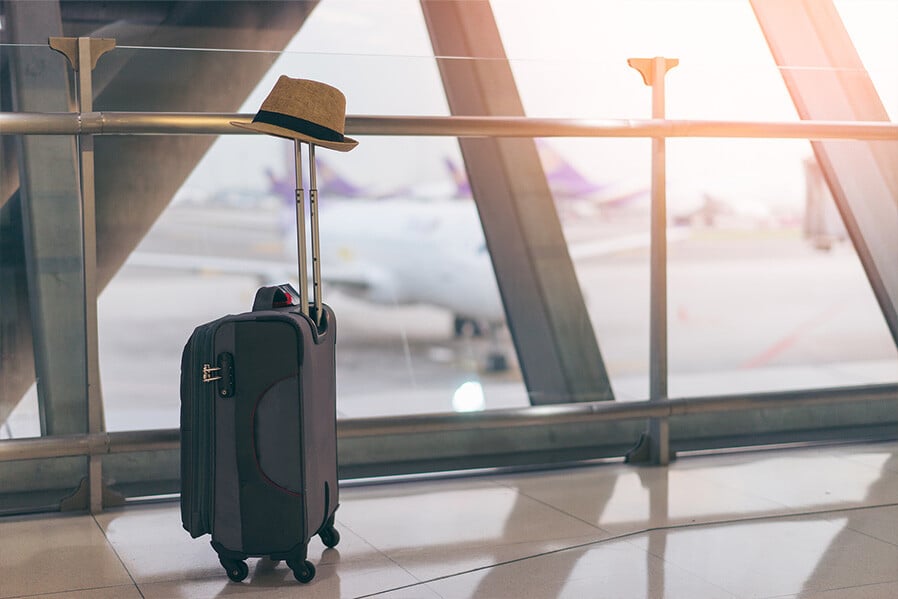
Check and copy important documents
Make sure your passport and any necessary visas are up to date and allow plenty of time to get new ones if necessary.
It’s a good idea to keep photocopies or digital copies of your passport, travel insurance, and any bookings or reservations. Losing important travel documents while overseas can be stressful, but having copies on hand can make replacement easier. Store these separately from the originals.
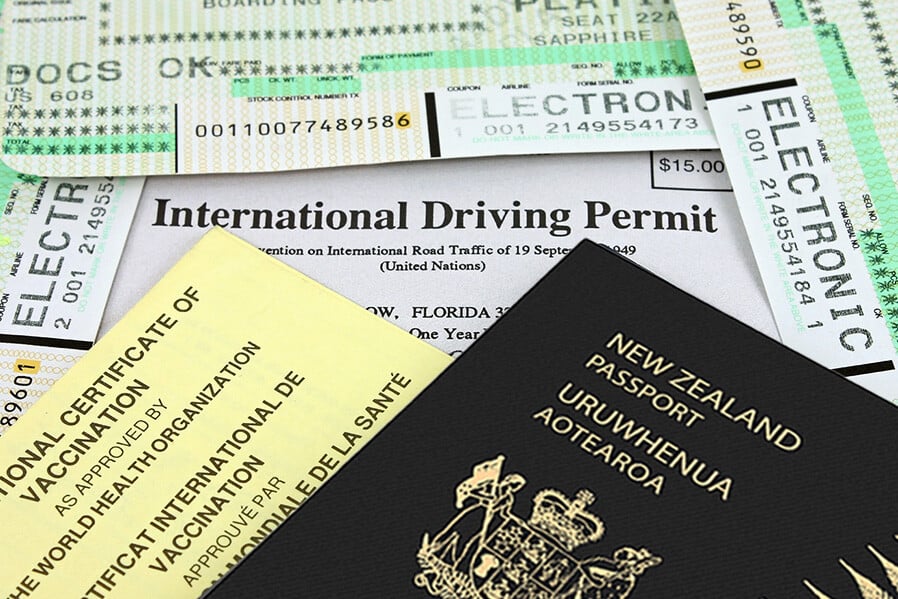
Consult your GP
Before embarking on your overseas adventure, it’s a good idea to visit your doctor for a health check-up to discuss any pre-existing conditions and ensure your vaccinations are up to date. If you're on prescription medications, ask for a sufficient supply for your entire trip and request a doctor’s note for customs, just in case. Inquire about any potential health risks at your destination as you may need to get travel vaccinations.
Let your bank know you’re travelling
By keeping your bank informed, you can enjoy smoother financial transactions while travelling.
If your card is used in a location far from your usual spending patterns, and the bank doesn’t know you are travelling there, it might trigger a fraud alert and lead to your account being temporarily frozen or transactions being declined. Some cards may need to be activated for international use or might have restrictions in the country you're visiting.
Informing your bank of your travel plans allows them to ensure your card will work seamlessly during your trip.
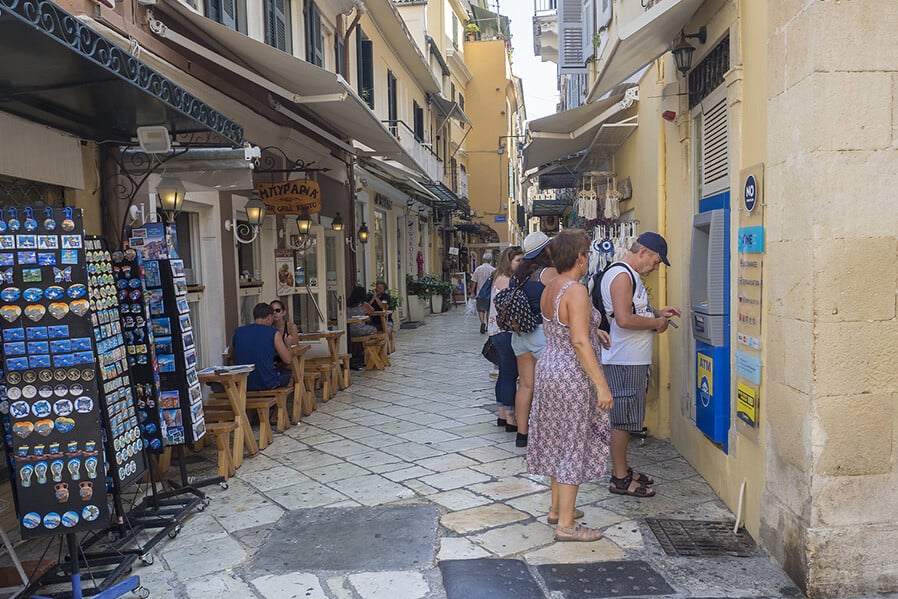
Activate international roaming
Before you leave, check with your mobile provider about international roaming. If you have this activated, when you reach a foreign country your phone will automatically connect to a local mobile network that has a roaming agreement with your mobile provider. Once your phone connects to the foreign network you can use it to make and receive calls, send texts, and use mobile data, just like you would at home.
Roaming is often more expensive than using your phone at home, especially for data usage. Charges for making or receiving calls, sending texts, or using mobile data can be significantly higher in foreign countries. These charges vary depending on the country you’re in, your provider’s roaming agreements, and the plan you’re on.
Pack light and smart
When packing, travel as light as possible. It’s no fun lugging around heavy luggage from place to place. A useful tip is to make a list of everything you think you’ll need, then whittle down the list as you go. Keeping this list on your phone is also handy if your luggage goes missing and you need to describe its contents.
Choose versatile clothing pieces that can be mixed and matched for different activities and layered for weather changes. Comfortable shoes are a must, even if you aren’t planning to do a lot of walking, as your steps add up quickly when you’re sightseeing. Include a windproof raincoat or jacket, a small first-aid kit, and an extra pair of glasses or contacts if you use them. Don’t worry if you forget an item of clothing because most things can be purchased at your destination.
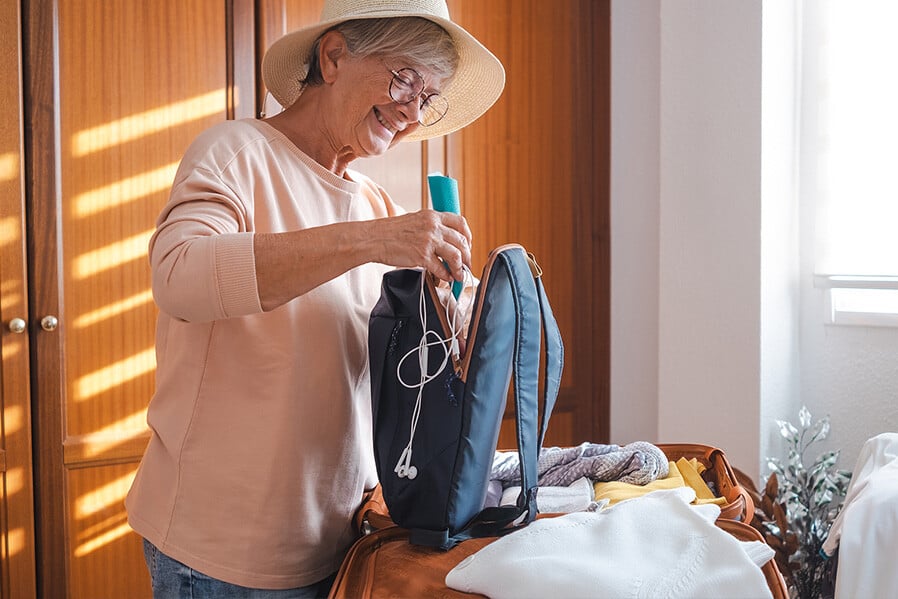
Plan for a comfortable flight
When booking your flight, you may prefer an aisle seat for easy access to the bathroom and the ability to get up and stretch without disturbing others. If you can, book a seat with extra legroom, such as those by the bulkhead seats. Bring a water bottle (make sure it’s empty when you go through security) and ask for water if you need it during the flight. To avoid dehydration, drink plenty of water and go easy on caffeine and alcohol.
Wear loose, breathable clothing that doesn’t restrict circulation, and comfortable shoes. Compression socks can help improve circulation, reducing the risk of swelling and deep vein thrombosis. Layering is also a good idea, as temperatures on planes can fluctuate from hot to cold quite quickly.
Include your prescription medications in your cabin baggage, in case your checked-in bag doesn’t arrive at the same time you do. Noise-cancelling headphones or earplugs are useful to bring with you to block out noise. Other useful items are moisturiser and lip balm, and you may want to bring a good book, although there are usually plenty of in-flight entertainment options to choose from. You might also want to pack an eye mask and a neck pillow to help you rest better, particularly if it’s an overnight flight.
A portable power bank to charge your devices is also very helpful, particularly if the flight you are on does not have a charger port that is suitable. Power banks need to be packed in your cabin baggage, not your checked-in bag.
If you're feeling anxious about the flight or nervous about the logistics, reach out to the airline in advance. They can help with boarding, seating, or any special requests that will make your flight more comfortable.
Now, all you need to do is sit back, relax, and enjoy your travels.
At Ryman, our residents love exploring the world just as much as you do, and the lock up and leave lifestyle at Ryman is the perfect match for a life of adventure. Click here to discover Ryman retirement villages near you.
by Christine McCurdy | Feb 24, 2025
Subscribe to our blog newsletter
You May Also Like
These Related Stories

How to have an epic retirement - NZ
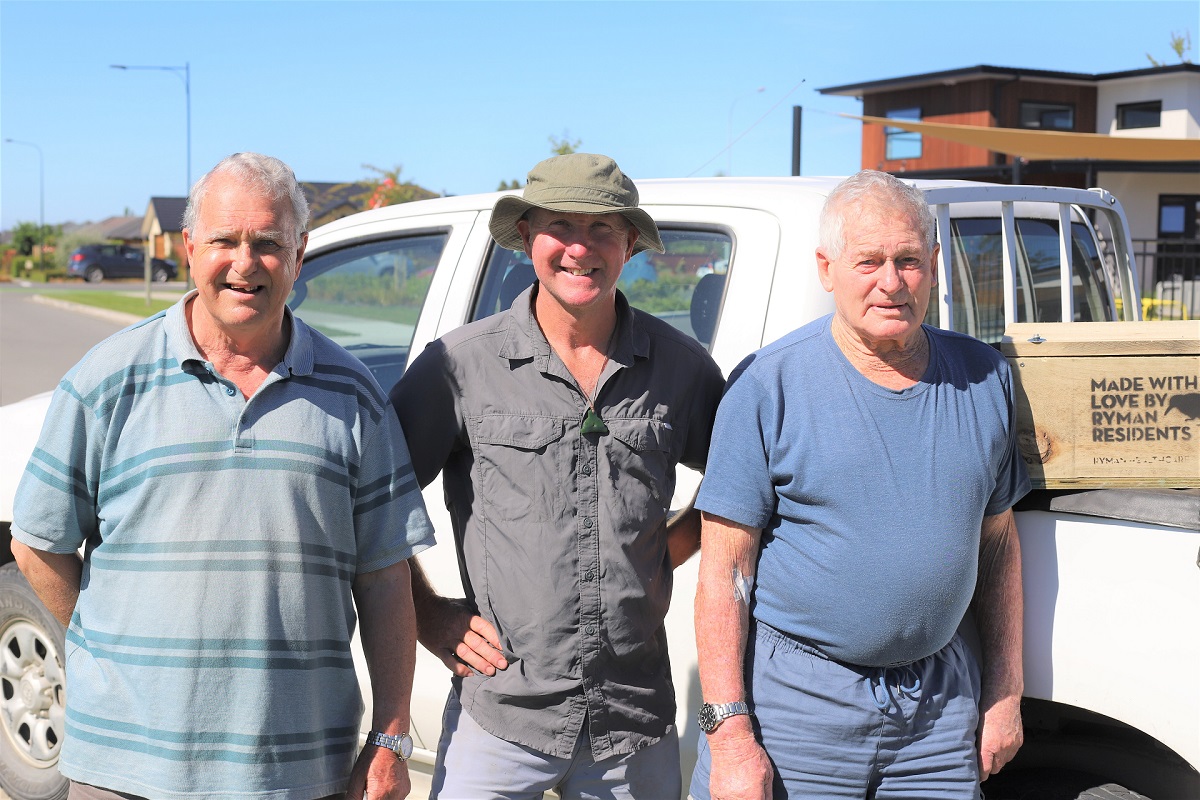
Residents team up with Sean Ellis to tackle pests in the Torlesse

